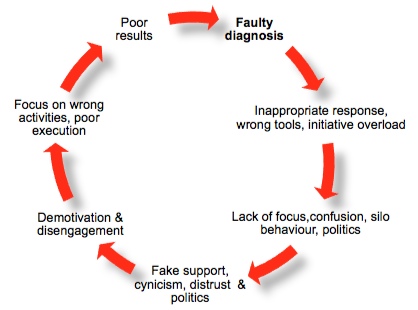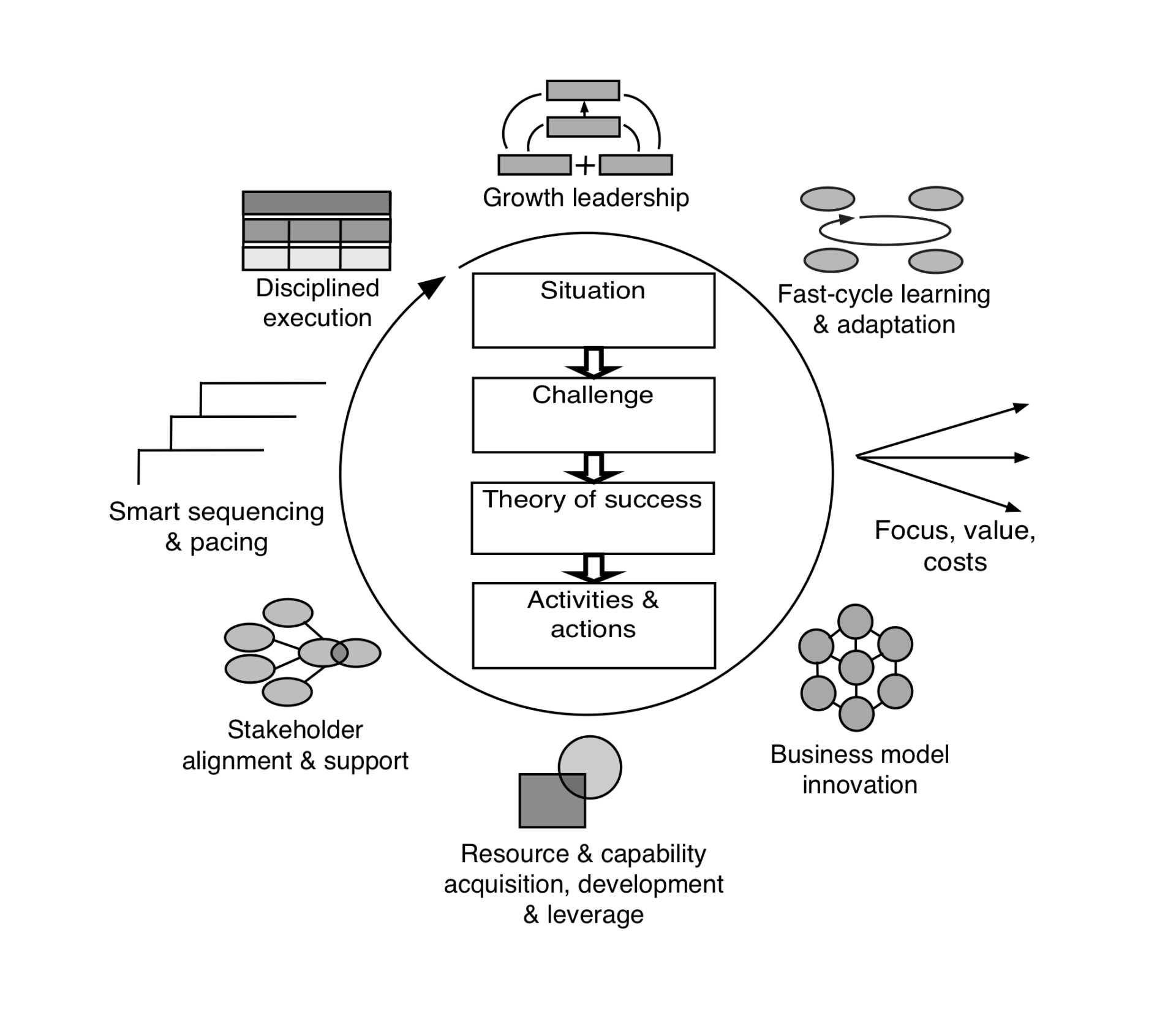Focus on the few
In the race to the future, you need fewer management tools than you think. So I’ll help you travel light to move fast.
Every executive needs a carefully thought-through strategy toolkit. Every company should have a clear point of view about what tools are best for it and how to use them—and a purposeful way of doing it.
But these critical matters are too often left to a whim or to chance. Managers misdiagnose the causes of underperformance, or make ill-informed decisions about what might enable them to do better. They grab at whatever new idea comes their way, pile initiatives on top of each other—and never abandon any of them. In no time, “the tyranny of tools” becomes sand in the gears of their performance.
This is ridiculous. So I’ll help you get to the root causes of problems, identify the few levers you should pull to seize tomorrow’s opportunities, and use the few tools that are best for you. You’ll get rid of a lot of stuff you don’t need, and do what really makes sense.
If you bounce from one tool to another in the hope of finding some “silver bullet,” you’ll clutter your organization, create complexity and confusion—and turn the climate toxic.


Hype doesn’t win business battles
Faced with a blizzard of challenges, companies are sitting ducks for guidance and inspiration from almost anyone. But all advice about strategy is not equal. All tools are not all equally useful. Hype should not influence your choices.
Whatever you use should make your Powerful Strategic Conversation increasingly powerful. Anything that doesn’t add to this “flywheel effect” should be struck off your list.
If you’re not clear about what you really need, and why, chances are you’ll keep falling for some shiny notion—a theory, a model, a process—that won’t help you the way you expect.
You’ll squander time, effort, and money on the latest fads, and wonder why they didn’t do what was promised.
You’ll keep changing your language and your focus.
And as you zig and zag, you’ll confuse yourself, paralyze your organization—and kill your own credibility and your chances of winning.
The good news is that we do know what’s necessary, and what works. So I’ll guide you through the maze—to what’s key to success, and to a way of working that will enable you to get the results you seek.
The Critical Core
A lot of “thought leadership” in business is in fact thought followership. There’s plenty of noise, and lots of repackaging and rebranding, but little that’s actually new or necessary.
To learn which ideas do matter, I sifted through a century or so of management thought and practice, and using a set of rigorous criteria, identified eight standout practices. These show up repeatedly—often disguised in new jargon—in books, academic articles, case studies and business school courses. They’re referred to in popular business media. And in biographies of famous companies and successful leaders.
They are what every company everywhere must do to survive and thrive. Not doing them, or doing them poorly, is a reliable predictor of failure!
These are The Critical Core.
They add up to a complete system for winning. They help you craft and conduct the Powerful Strategic Conversation you need. And they provide a starting point for considering what other tools might be useful.
Of course, the external environment has a major impact on how companies perform. But it’s what managers do inside that enables some firms to outdo others whatever the conditions.
The value in The Critical Core has been shown beyond doubt. So it features strongly in my strategy philosophy, and should in yours too.

These eight Critical Strategy Practices are the building blocks of competitive advantage. Separately and together, they offer you opportunities to up your game.
My study of management “thought leadership” over the past 100 years highlights eight Critical Strategy Practices that have stood the test of time, and that apply to all companies everywhere. These are not just nice-to-do. They’re what you must do to compete and win. So I call them The Critical Core.
Success stories
We have all benefited enormously from your incisive and innovative thinking
Tony Manning has the ability to assist managers of companies ask and answer tough questions about their business; to confront issues facing them; and in a frank and realistic way, to develop a positive forward-looking attitude towards achieving growth
You make refreshing sense of complexity. Your valuable, practical advice is making a real impact in our business
